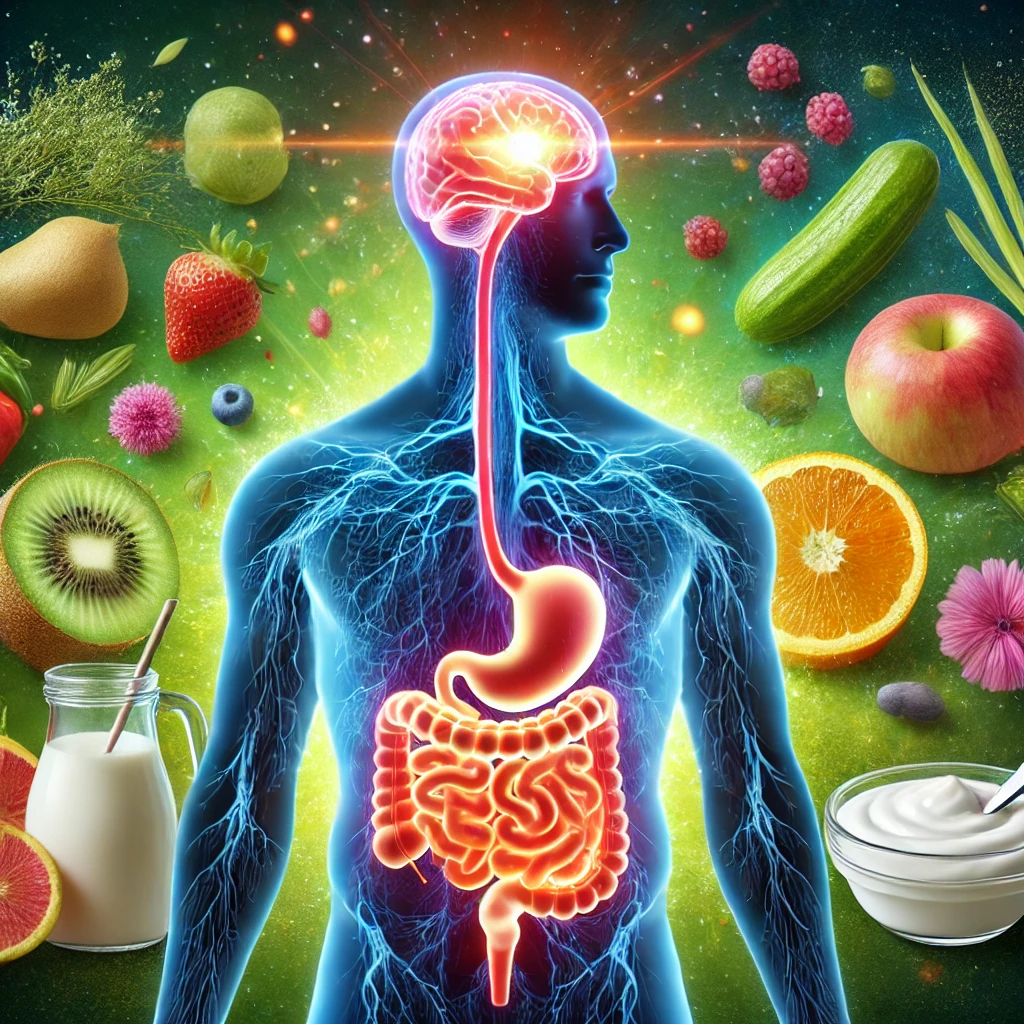Did you know that your gut and brain are closely connected? Scientists call this relationship the gut-brain axis, and research shows that your digestive health can significantly impact your mood, stress levels, and cognitive function. In this guide, we will explore the science behind the gut-brain connection and how you can improve your mental and digestive health through diet and lifestyle changes.
Understanding the Gut-Brain Connection
The gut and brain communicate through a complex network of nerves, hormones, and microbes. This bidirectional relationship means that when your gut is healthy, your brain benefits, and vice versa.
- The Vagus Nerve: A primary communication highway between your gut and brain.
- Gut Microbiome: Trillions of bacteria in your intestines that influence mood, immunity, and digestion.
- Neurotransmitters: The gut produces about 95% of the body’s serotonin, a key hormone that stabilizes mood and happiness.
Signs of an Unhealthy Gut
An imbalance in gut bacteria, also known as dysbiosis, can lead to both physical and mental health issues. Common signs include:
- Bloating, gas, or irregular digestion
- Food intolerances or frequent infections
- Fatigue and brain fog
- Anxiety, depression, or mood swings
How to Improve Your Gut and Mental Health
1. Eat a Fiber-Rich Diet
Fiber helps feed beneficial gut bacteria and supports digestion. Include:
- Fruits and vegetables (bananas, apples, spinach)
- Whole grains (oats, quinoa, brown rice)
- Legumes (beans, lentils, chickpeas)
2. Incorporate Probiotics and Prebiotics
Probiotics are live beneficial bacteria, while prebiotics are the food that fuels them.
- Probiotics: Found in yogurt, kefir, kimchi, and sauerkraut.
- Prebiotics: Found in garlic, onions, bananas, and asparagus.
Learn more about probiotics and gut health.
3. Reduce Processed Foods and Sugar
Excess sugar and processed foods can cause gut inflammation and lead to imbalances in gut bacteria.
4. Manage Stress
High stress levels can disrupt gut function. Try:
- Meditation and deep breathing exercises
- Regular physical activity
- Spending time outdoors
5. Stay Hydrated
Drinking enough water supports digestion and helps maintain a balanced gut microbiome.
6. Get Enough Sleep
Poor sleep negatively affects both gut health and mental well-being. Aim for 7-9 hours of quality sleep per night.
Discover how sleep impacts gut health.
7. Consider Supplements
Certain supplements may support gut health, including:
- Probiotic supplements (for digestive balance)
- Omega-3 fatty acids (for reducing inflammation)
- L-glutamine (for gut lining repair)
See also The Ultimate Guide to Digital Detox: How to Unplug for Better Mental Health
Conclusion
Your gut health plays a crucial role in your mental well-being. By making small dietary and lifestyle changes, you can enhance both your digestive system and mood. Start prioritizing your gut today for a healthier, happier mind!



